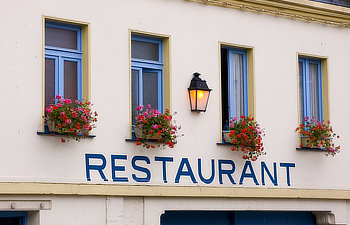
Running a restaurant involves numerous behind-the-scenes components that ensure smooth operations and customer satisfaction. One of these crucial aspects is the management of your waste disposal system, especially if your restaurant relies on a septic system. Unlike urban areas connected to municipal sewage systems, rural and suburban restaurants often depend on septic systems to handle waste. Here’s what you need to know to keep your septic system in top shape and avoid potential health hazards and costly repairs.
Understanding Septic Systems
A septic system is an on-site wastewater treatment system. It typically comprises a septic tank and a drain field (or leach field). Wastewater from your restaurant flows into the septic tank, where solids settle to the bottom, forming sludge. Lighter waste, such as oils and grease, rises to the top, creating scum. The liquid (effluent) flows out into the drain field, where it percolates through the soil, undergoing natural filtration.
Importance of Regular Maintenance
Maintaining a septic system is critical to preventing overflows, backups, and environmental contamination. Regular inspections and pumping are essential. For a restaurant, which generates a higher volume of wastewater compared to residential properties, the septic tank may need to be pumped more frequently—every one to three years, depending on usage.
Regular Inspections and Pumping
- Schedule Inspections: Have a professional inspect your septic system annually to check for any signs of wear and tear or potential problems.
- Regular Pumping: Depending on the size of your tank and the volume of wastewater, schedule pumping every one to three years. This prevents sludge buildup, which can cause system failure.
- Keep Records: Maintain detailed records of all inspections, pumping, and repairs. This helps in tracking the system’s health and planning future maintenance.
Waste Management Best Practices
Proper waste management can significantly extend the life of your septic system and prevent costly repairs.
Grease Management
- Install Grease Traps: Grease and oil can clog your septic system, leading to backups and system failures. Install grease traps to intercept grease before it enters the septic tank.
- Regular Cleaning: Clean grease traps frequently to ensure they function properly. This prevents grease buildup in your septic system.
Waste Segregation
- Avoid Chemical Drain Cleaners: Harsh chemicals can kill the beneficial bacteria in your septic tank that help break down waste. Use enzymatic cleaners instead.
- Proper Disposal of Food Waste: Solid food waste should not enter the septic system. Use strainers in sinks and dispose of food waste in compost bins or trash.
Employee Training
Educate your staff about the importance of proper waste disposal practices. Ensure they understand what can and cannot go down the drains. Regular training sessions can help reinforce these practices and prevent accidental misuse.
Emergency Preparedness
Despite best efforts, emergencies can occur. Have a plan in place for handling septic system failures.
Signs of Septic System Problems
- Slow Drains: If drains are slow, it could indicate a full septic tank or a blockage.
- Foul Odors: Unpleasant smells around the drain field or inside the restaurant suggest a septic issue.
- Backups: Sewage backups are a clear sign of septic system failure and require immediate attention.
Emergency Plan
- Contact a Professional: Have a reliable septic service provider’s contact information readily available for emergencies.
- Contain the Area: If a backup occurs, contain the affected area to prevent contamination and health risks.
Metro Septic is Here to Help Your North Georgia Restaurant
Proper septic system management is essential for the smooth operation of your restaurant. By understanding your system, implementing best practices for waste management, and ensuring regular maintenance, you can prevent costly repairs and health hazards. Partnering with a professional septic service, like Metro Septic in Cartersville, ensures your system remains efficient and reliable, allowing you to focus on providing excellent service to your customers.
For expert septic system maintenance and emergency services, trust Metro Septic in Cartersville. Our experienced professionals are here to ensure your restaurant’s septic system runs smoothly. Contact us today to schedule an inspection or learn more about our services.

